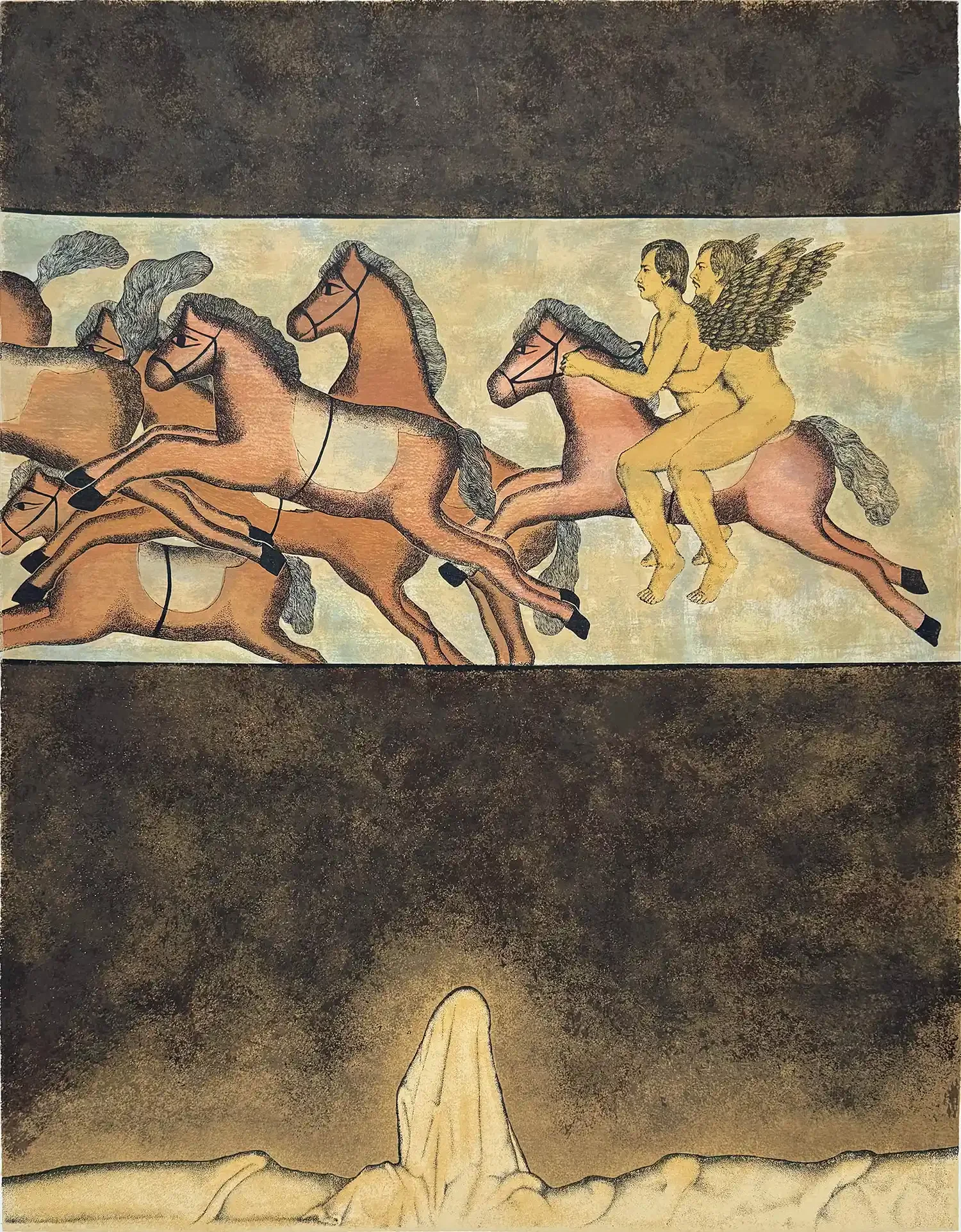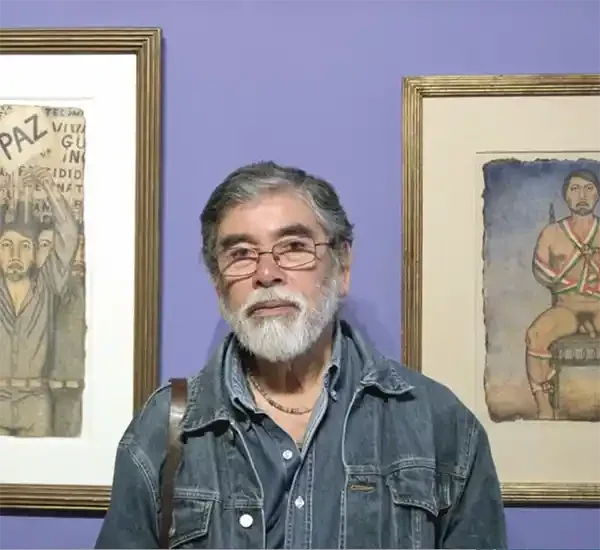Nahum Zenil - prints and biography
Nahum Zenil
Nahum Zenil (b. 1947, Veracruz, Mexico) is one of Mexico’s most distinctive contemporary artists, renowned for his prints, drawings, and paintings that merge autobiography with cultural symbolism. Best known for his unflinching use of self-portraiture, Zenil places his own body at the center of his art, using it as a lens to explore identity, sexuality, religion, and the social structures that shape Mexican life. His work stands at the intersection of personal narrative and collective memory, turning intimate experience into a universal meditation on human existence.
Printmaking has been a central medium for Zenil throughout his career. His lithographs, etchings, and mixed-media works are marked by meticulous detail and a surreal quality that combines dreamlike imagery with stark symbolism. Horses, angels, religious figures, and architectural fragments often appear alongside his own likeness, creating visual allegories that examine desire, mortality, and faith. In works such as Otro Sueño and other prints from the 1980s and 1990s, eroticism and spirituality coexist, suggesting both tension and reconciliation between body and spirit.
Zenil emerged during a period when Mexican art was expanding beyond the muralist tradition, embracing more personal and experimental voices. He became associated with a generation of artists addressing sexuality, gender, and cultural identity at a time when these subjects were rarely explored openly. His prints have been widely exhibited internationally and are included in major collections, including the Museo de Arte Moderno in Mexico City, the Bronx Museum of the Arts, and the Mexican Fine Arts Center Museum in Chicago.
By weaving together autobiography, myth, and cultural archetypes, Nahum Zenil has created a body of prints that are at once deeply personal and profoundly emblematic. His work continues to challenge conventions of representation while affirming the power of printmaking as a vehicle for both intimacy and universality.

